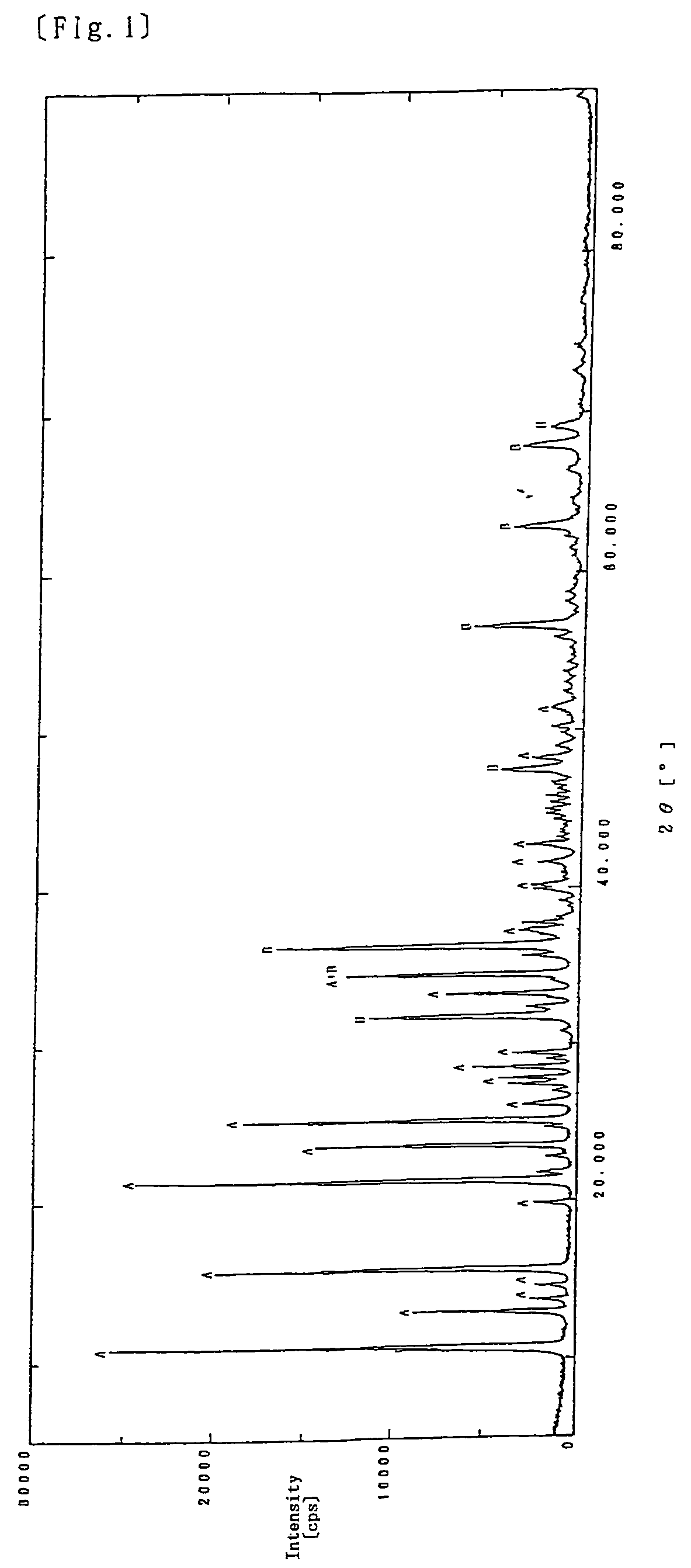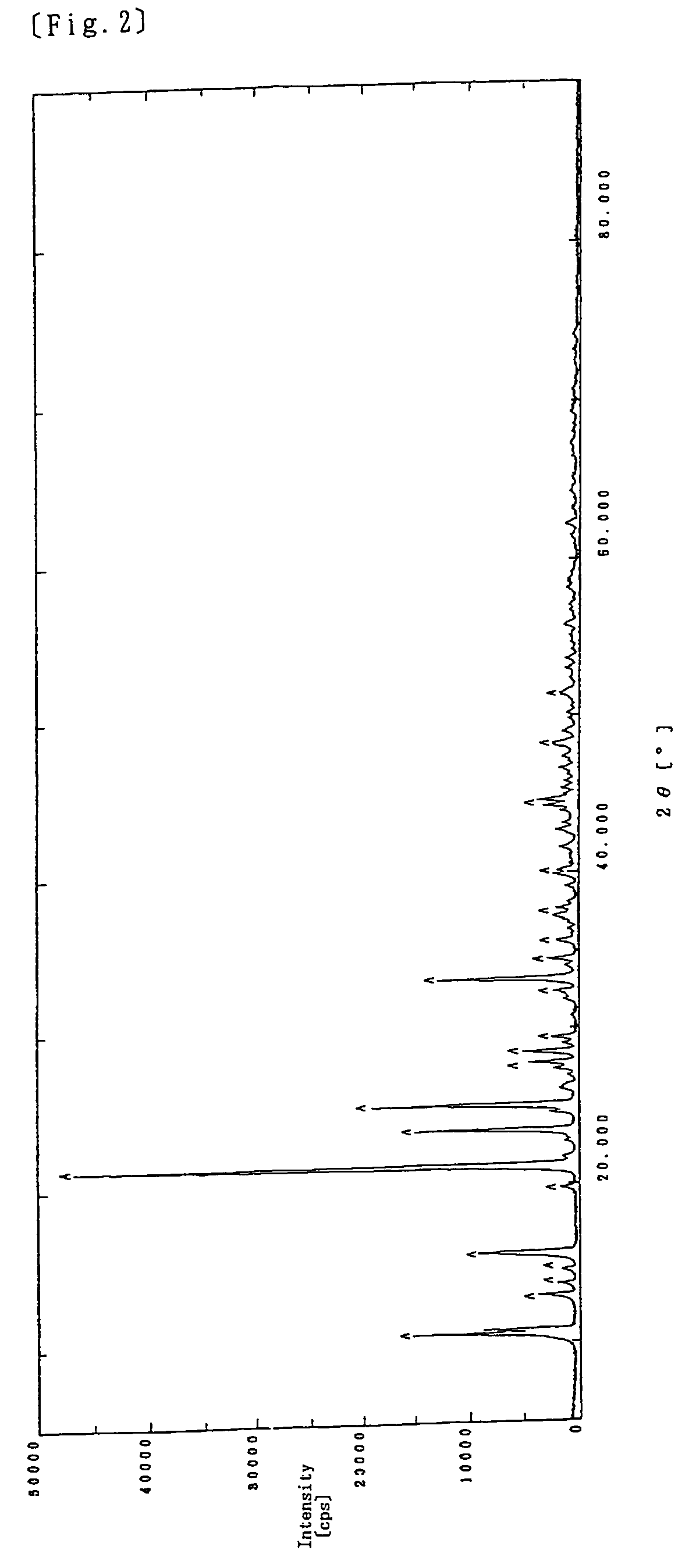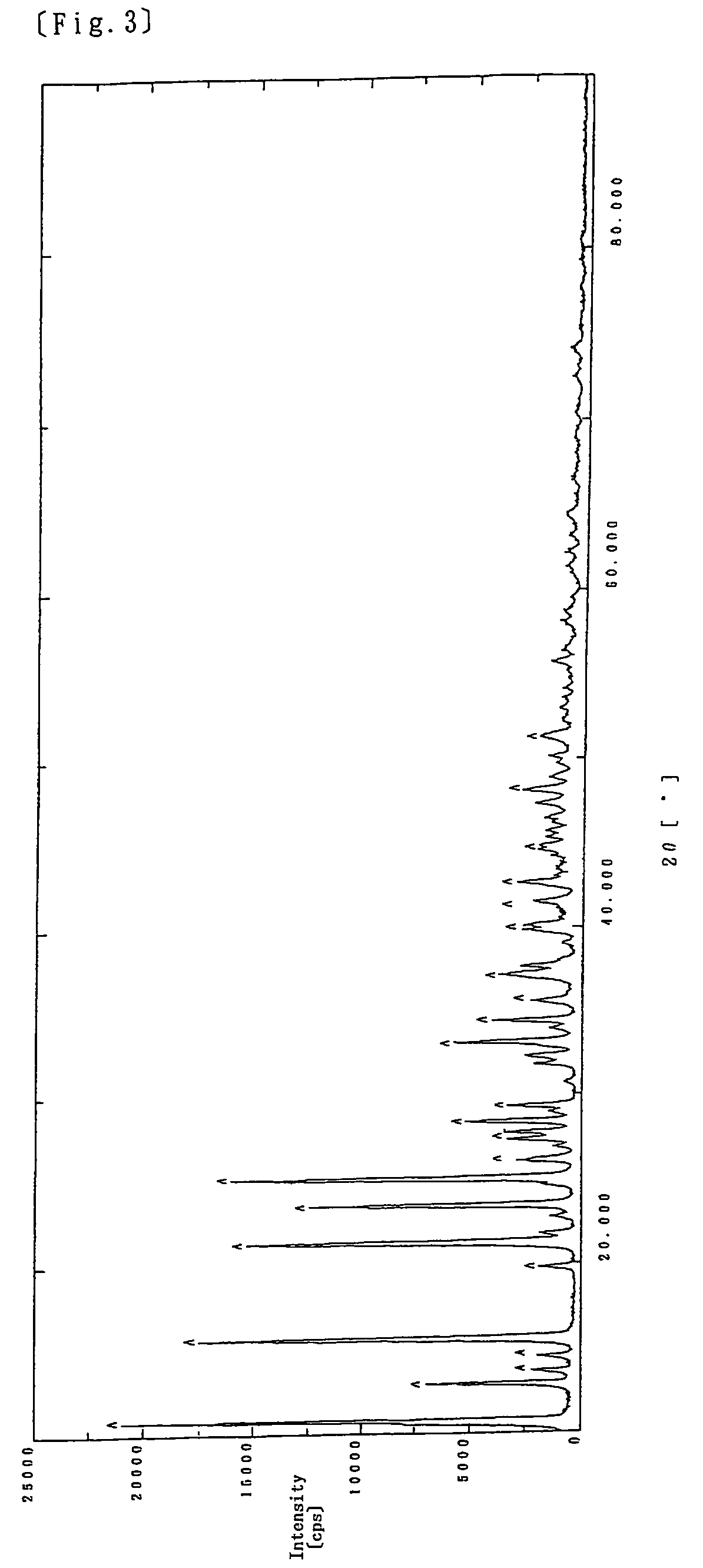Pyrithione complex compound, process for producing the same and use thereof
a complex compound and pyrithione technology, applied in the field of new complex compounds, can solve the problems of insufficient biological activity of pyrithione metal salts and inability to achieve stable effects, and achieve superior antibacterial and antifungal effects, superior long-term effect to zinc pyrithione, and excellent heat stability during processing
- Summary
- Abstract
- Description
- Claims
- Application Information
AI Technical Summary
Benefits of technology
Problems solved by technology
Method used
Image
Examples
example 1
Synthesis of a Compound (1)
[0073]41.5 mL of an aqueous 1 mol sodium pyrithione solution and 50 mL of an aqueous 2 mol sodium hydroxide NaOH solution were combined and placed in a 300 mL conical flask, which was then kept at 20° C. 120 mL of an aqueous solution containing 12.0 g (which was mol equivalent to that of sodium pyrithione) of zinc sulfate ZnSO4.7H2O was added dropwise to the above mixture for 70 minutes and as a result, the mixture was clouded (pH: about 11). The cloudy liquid was adjusted to pH 9.5 by adding 5 mL of concentrated hydrochloric acid thereto and stirred continuously for further 4 hours. The reaction liquid was filtered using a No. 2 filter paper and the resulting solid was returned to the 200 mL beaker containing 100 mL of water, which was then washed with water by decantation. The solid obtained from the cloudy liquid by filtration using a No. 2 filter paper was dried at 50° C. for 5 hours and pulverized to obtain 8.3 g of a white powder.
[0074]The amount of ...
example 2
Synthesis of a Compound (2)
[0076]In the above Example 1, the clouded liquid was stirred further for one hour after adjusted to pH 9.5 instead of carrying out a stirring operation for 4 hours and then the reaction liquid was raised to 90 to 100° C., followed by stirring for one hour. The washing with water was repeated three times. Other than the above operations, the same procedures were carried out using the same raw materials that were used in Example 1 in the same manner as in Example 1 to obtain 7.4 g of a white powder.
[0077]The amount of sodium pyrithione recovered from the filtrate and the solution used for washing was 0.13 g as iron pyrithione.
[0078]The resulting white powder was subjected to X-ray diffraction analysis, with the result that the chart showed a similar pattern to that obtained in Example 1.
example 3
Synthesis of a Compound (3)
[0079]1000 mL of an aqueous solution containing 260.4 g (1.75 mol) of sodium pyrithione and 1800 mL of an aqueous solution containing 152 g (3.8 mol) of sodium hydroxide were combined and placed in a 10 L glass reactor, which was then kept at 20° C. 4000 mL of an aqueous solution containing 506 g (1.75 mol) of zinc sulfate ZnSO4.7H2O was added dropwise to the above mixture for 100 minutes to cause the solution to be cloudy (pH: about 11). About 180 mL of concentrated hydrochloric acid was added dropwise to this liquid to adjust the pH to 9.5. Then, the liquid was kept at about 20° C. and stirred continuously for about 4 hours. The reaction liquid was subjected to filtration using a No. 2 filter paper and the obtained solid was returned to the 10 L reactor containing 2000 mL of purified water and washed with water by decantation. This water washing was repeated twice, to confirm that the filtrate was not colored in a violet color by iron (II) ions. Then, th...
PUM
| Property | Measurement | Unit |
|---|---|---|
| pH | aaaaa | aaaaa |
| exothermic peak temperature | aaaaa | aaaaa |
| pH | aaaaa | aaaaa |
Abstract
Description
Claims
Application Information
 Login to View More
Login to View More - R&D
- Intellectual Property
- Life Sciences
- Materials
- Tech Scout
- Unparalleled Data Quality
- Higher Quality Content
- 60% Fewer Hallucinations
Browse by: Latest US Patents, China's latest patents, Technical Efficacy Thesaurus, Application Domain, Technology Topic, Popular Technical Reports.
© 2025 PatSnap. All rights reserved.Legal|Privacy policy|Modern Slavery Act Transparency Statement|Sitemap|About US| Contact US: help@patsnap.com



